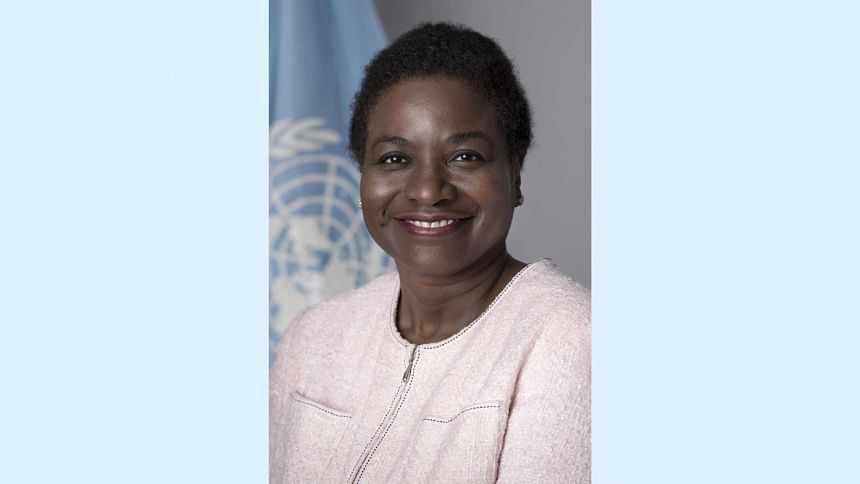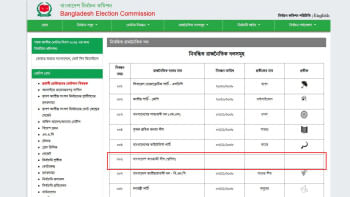‘Take action to prevent child marriage’

Child marriage in Bangladesh is deeply troubling, and effective and immediate action is required to put an end to it, said UN Under-Secretary-General Dr Natalia Kanem.
"We have seen girls aged just 12 who are pregnant. This is deeply worrying, and society needs to realise it and take action in this regard," said Dr Kanem, who is also executive director of the UN Population Fund (UNFPA).
The dividend comes when you invest in girls' education. This will ultimately lead to multiple benefits in health, productivity, and income.
She was in Dhaka recently for a two-day global dialogue on demographic diversity and sustainable development, marking the 30th anniversary of 1994's landmark International Conference on Population and Development (ICPD) in Cairo.
In an interview with The Daily Star, spoke on the progress made since the ICPD in Cairo and the challenges and ways out in the days to come.
She said ICPD put women and girls at the centre of development, and there has been remarkable progress in women's development, alongside their sexual and reproductive health.
"For example, maternal mortality fell by one-third. In Bangladesh, it fell by 38 percent. There were many policies and laws enacted, like the Prevention of Oppression Against Women and Children Act 2000 in Bangladesh," Kanem said.
However, the ICPD agenda remains largely unfinished, with child marriage being one of them, she added.
According to UN data, 51 percent of girls in Bangladesh are married before their 18th birthday and of them, 15 percent are married before the age of 15. Additionally, at least four percent of boys are married before the age of 18.
"It is very risky to have a pregnancy at such a young age. Teaching them safe sexuality and delaying pregnancy are of critical importance," Dr Kanem said.
When such young women give birth to children, they face health risks, alongside higher risks of gender-based violence, she said.
If the mother is educated, a family enjoys better health and economic conditions, eventually leading to a better-off future generation, while the opposite happens otherwise, she added.
"The dividend comes when you invest in girls' education. This will ultimately lead to multiple benefits in health, productivity, and income," she also said.
Another objective of ICPD was to end maternal and child deaths, but that goal is far from being achieved despite notable progress.
Sharing her experience of visiting facilities at the Santal community in Gaibandha, where UNFPA-trained midwives deliver babies, Dr Kanem said before only three percent of women used to go to the facility but now it has gone up to 20 percent.
"Three midwives delivered 494 children there. The people were so happy," she said, noting that pregnant women visiting such facilities for deliveries and pregnancy-related advice help in a great way.
In general, 33 percent of deliveries take place at homes, which is dangerous. The challenge now is how to decrease it, she said, adding, "Bangladesh has leadership, but massive social awareness is required and media can play a role here."

 For all latest news, follow The Daily Star's Google News channel.
For all latest news, follow The Daily Star's Google News channel. 



Comments